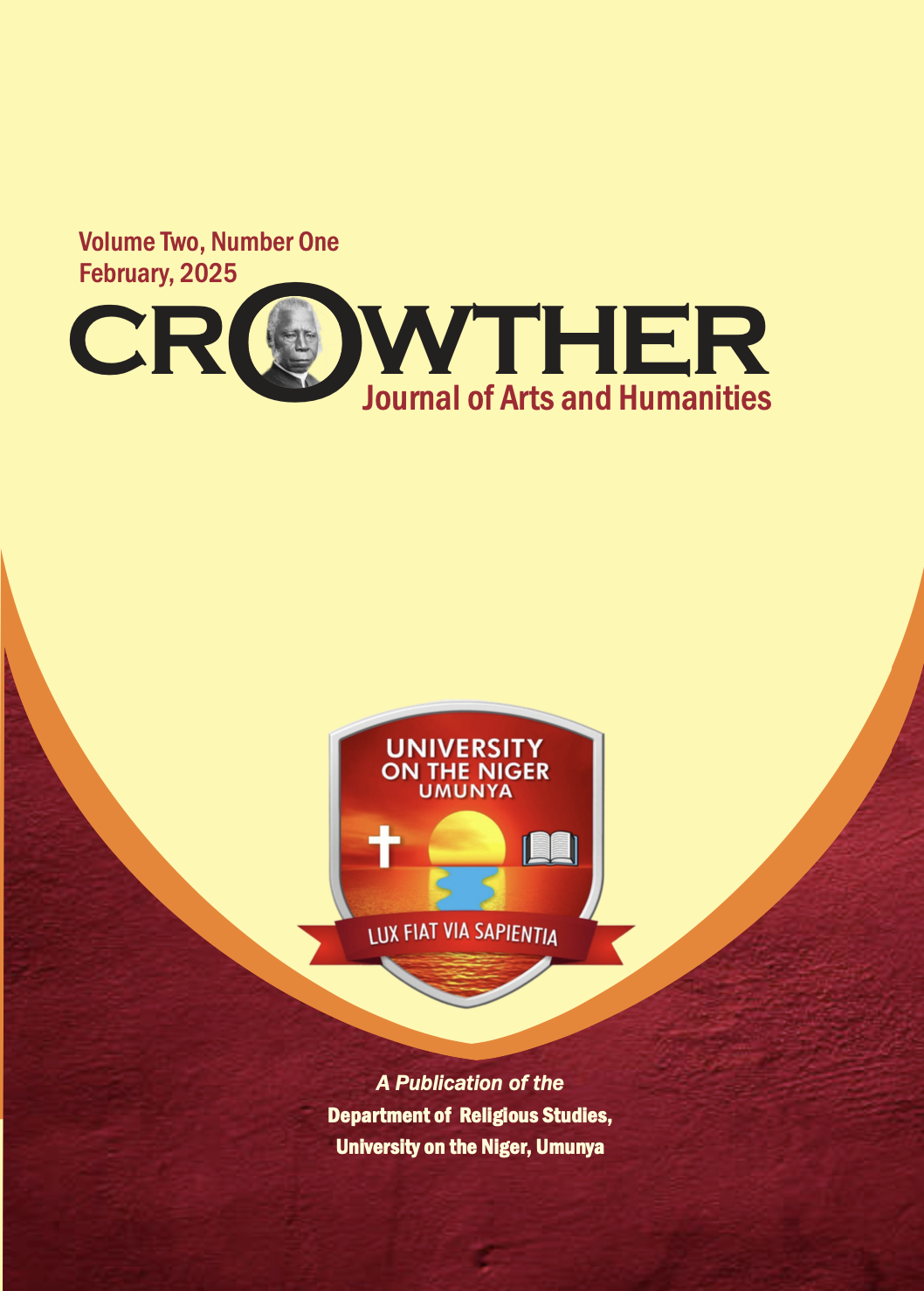CHRISTIANITY, HUMAN GENDER AND THE RISE OF TRANS-SEXUALITY IN THE NIGERIAN SOCIETY
Abstract
The practice of sex-change and gender-swapping which originated from the western world is widely spreading through the rest of the world through the forces of globalization and cultural diffusion. Religious morality has generally been opposed to trans-sexuality from the very beginning, as most religions believe that God (the Supreme Being) determines, creates, assigns and controls the strictly binary gender of male and female in all human societies right from the stage of human conception. Judeo-Christianity’s basic teachings are against sex-change among other aberrations of sexual morality that are practiced in the increasingly secular societies where religious beliefs and practices are on the down turn. Using the secondary source of data gathering and analysis, the researchers established that the rapid progress being made in science and technology in modern times along with cultural exchanges afforded by the gains of globalization have contributed to a more positive attitudinal change to trans-sexuality by the younger generations. This science factor also made the processes involved in the sex-change surgery and hormone treatment less complicated and increasingly available to those who want and can afford them. The in-road being made by the trans-sexual movement is noticeable in all parts of the world even in societies known to be strongly maledominated, across Africa and Nigeria in particular, which is the central focus of this paper. This progress is aided by the fact that the Nigerian government outlawed only homosexual practices and associations in its recent legislation against orientations and preferences deemed sexually immoral in the society. Because of this gap in law in the country, trans-genders who dare to come out in the open to declare and even celebrate their gender change presently, paradoxically achieve a celebrity status (in the negative sense though) because the practice is still seriously frowned on by the greater majority of the people as a taboo. Considering the stigma that is still attached to such a practice which is also considered in Christianity (one of the major religions in Nigeria) as an immoral act, the majority of those who feel they have been assigned the wrong sex at birthare reluctant to make their trans-sexual leanings known to the public. This paper observes that Nigeria and other countries of the developing world where trans-gendering is still seen as an aberration can proactively curb its progress through legislation, going by the success recorded through the laws applied against homosexuality, which largely checkmated the practice at least, in the public domain of the Nigerian society.


